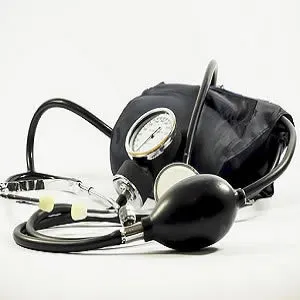Researchers at the University of Bristol could be eyeing the first new anti-hypertensive drug treatment strategy in more than 15 years. The research is titled “Purinergic receptors in the carotid
body as a new drug target for controlling hypertension,” and is published in Nature Medicine.
The Bristol research team and Afferent Pharmaceuticals
have identified a novel approach that targets the aberrant nerve signals in the carotid bodies which are located on the carotid arteries on each side of the neck.
The research team was led by
Julian Paton, professor of physiology at the University of Bristol. The treatment strategy aims to reduce nervous system activity from the carotid body. It could be superior to the current medications because it lowers blood pressure directly at a common source. In addition, the treatment may also have beneficial outcomes for heart failure and sleep apnoea as in both cases, the carotid bodies are known to be sensitised.
In preclinical models, the study researchers successfully blocked the carotid body aberrant signaling activity with an
investigational drug candidate, MK-7624 (also known as AF-219),
and were able to demonstrate significant reduction in blood pressure.
“With this research, we’ve validated P2X3 receptors as a novel drug
target for the treatment of cardiovascular disease by demonstrating that
blockade of these receptors with a selective antagonist controls
carotid body activity,” said Dr Angus Nightingale, a cardiology
consultant who runs the specialist hypertensive clinic at the Bristol
Heart Institute and is a co-author of the study.
He further pointed out that the next step is to find out whether blocking the P2X3 receptors will lower elevated blood pressure and if yes, what would be the best strategy to identify patients with carotid body hyperactivity.
Professor Paton, who
co-led the research with Dr Anthony Ford, founder and chief scientific
officer of Afferent Pharmaceuticals explains that in healthy individuals, the carotid bodies have very low activity levels but they can become hyperactive in conditions of hypertension. In such cases, they generate an aberrant or tonic discharge into the brain regions that control cardiovascular activity. By targeting the carotid body, blood pressure can thus be more effectively controlled.
The research team used an animal model of human hypertension and discovered that the energy molecule
ATP (adenosine triphosphate) activated the P2X3 receptor. The protein was upregulated by almost 5 fold in the carotid body in
hypertension.MK-7264/AF-219 blocks this receptor in the carotid body resulting in a significant blood pressure reduction.
“Crucially, unlike carotid body removal, the drug did not render the
carotid body inoperable,” said Professor Paton. “Instead, it normalised
its activity levels to those found in a normotensive state. Think of it
in terms of a domestic fire alarm – it switches off after the smoke
disappears, but the battery remains in place, meaning it can still
respond in an emergency.”
The researchers have developed tests to assess the activity state of
the carotid body in human hypertensive patients. They are confident that this new treatment strategy could be the first of its kind to direct the root cause of excessive sympathetic discharge to cardiovascular end-organs.
Source: University of Bristol
Image Credit: Pixabay










